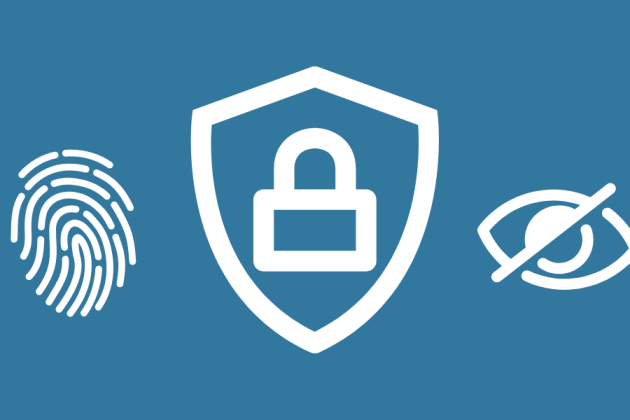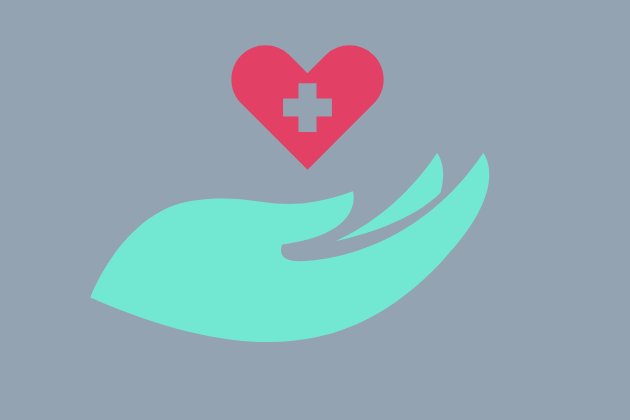
Regardless of your relationship, health care providers have legal and professional obligations to maintain both patient privacy and confidentiality. When you are speaking to a health care provider or anyone providing sexual health services, you can ask questions about what is confidential and who it would be shared with. This way you have the power to decide what you want to share with them.
This section includes info on what privacy and confidentiality means, and what it looks like in practice in various situations
Definitions
We often use the words privacy and confidentiality interchangeably but they mean specific things in the context of healthcare.
Privacy
Privacy means that you control what information you choose to share, who you share it with, and what happens with your information. This includes:
- Not being disturbed by other people during your appointment.
- Giving consent in advance to allow someone (like medical students) to observe during your appointment; being able to withdraw your consent if you decide you are not comfortable once they are in the room.
Confidentiality
Confidentiality means that your personal information or documents cannot be shared without your consent beyond your health care team (known as your circle of care), with some exceptions. When shared, it must only go to an authorized person/people using secure means so that only the intended receiver will get to see this information.
Circle Of Care
A circle of care is when there are a number of health care providers involved in caring for you. Information-sharing between the people in your circle of care is often required to ensure a centralized approach to your care and this usually relies on implied consent. For example, if your family doctor makes a referral to a specialist, the specialist may assume that your results can be sent back to your family doctor. Or your health care provider might share information with other health care providers within their clinic to consult on your case. Any sharing outside of your circle of care needs to be approved by you and you can always put limits and conditions about what is being shared within your circle of care. You can also ask about who your health care provider is sharing information with and under what circumstances.
Sharing Information
Health care providers have legal and professional obligations to maintain confidentiality. They are only allowed to share information with your circle of care and in situations where they have consent to share information.
Consent
You can give consent verbally, in writing, or as a directive. Each province and territory has their own Health Information Protection Act that spells out how patients must give consent for the collecting, using, or sharing of health information, unless an exception applies. Consent can also be implied, which is when it is reasonable to assume someone has your consent. This can look like:
- If you are unconscious, a first responder assumes implied consent when beginning to help you.
- Sharing information within your circle of care.
Remember that you always have the right to ask questions about what tests are being done, what blood samples will be used for, or what information is being shared. This can be to make sure your implied consent is not being relied on for things you would rather be consulted on and provide explicit permission for.
Family members do not fall within your circle of care, so a health care provider can’t assume implied consent to share information with them. Unless you explicitly invite them into the room or give consent to share information, your family members should not be made aware of what you speak about, even if they visit the same family doctor.
Exceptions To Requiring Consent
There are some specific situations when health care providers are allowed, or even required by law, to disclose some information you have shared with them. Usually this pertains to issues that impact your safety or the safety of someone else.
Situations when health care providers are allowed or obligated to disclose some information:
- They believe a child is in need of protection (e.g.. if you are a minor and disclose that you are experiencing abuse at home).
- Someone has a medical condition that may make it dangerous to drive (e.g. epilepsy, visual impairments, etc.).
- They believe a resident of a nursing home or retirement home has suffered harm or is at risk of harm.
- They are filing official paperwork to register births, stillbirths, or deaths.
- Someone is diagnosed with a specific communicable disease or infection. Some diseases and infections are reportable to health authoritiesto track trends and possible outbreaks. Read more here.
- They are involved in a Community Treatment Plan. Health care providers involved in the care of patients who are following Community Treatment Plans (or orders) have specific reporting duties under the Mental Health Act, which include providing the police with information pertinent to the Community Treatment Plan.
- They suspect healthcare fraud (e.g., when an ineligible person receives or attempts to receive an insured service).
Additionally, a health care provider may be permitted by law to share information if they believe someone is at major risk of causing serious bodily harm to themselves or other people. Before they share any information, health care providers need to consider:
- If there is a clear risk to an identifiable person or a group of persons;
- If there is a risk of serious bodily harm or death; and
- if the danger is imminent. This includes when they believe you may be at risk of killing or seriously harming yourself.
When any of these situations come up, you can ask whether your health care provider is familiar with applicable reporting obligations and knows to:
- Inform you of what is happening,
- Seek consent when they can, and
- Limit the information disclosed to what they are mandated to report on.
For instance, if you disclose that you have plans to harm yourself, a health care provider can say, “I have the duty to disclose that you have shared this information with me” while helping you find support. A health care provider should be transparent when they are disclosing information.
Consent And Confidentiality For Youth Under 19
Each province and territory sets a specific age when it assumes you are capable of giving consent for your own medical care, ranging from 14 to 19 years old. If you are under the age for assumed medical consent in your province or territory, you can consent to your own medical care as long as you are “capable”. The law considers you capable if you show that you understand:
- The need for medical treatment.
- What the treatment involves.
- The benefits and risks of treatment (or not being treated).
This includes healthcare access without the knowledge or consent of a parent or guardian for things like birth control, abortion, sexually transmitted infections, mental health issues, and alcohol/substance addiction issues.
If your health care provider explains these things, feels like you understand them, and that the healthcare is in your best interest, they can treat you without permission from your parents or guardian. You might have to sign a consent form. If you are considered capable of making your own medical decisions, then you have a right to doctor-patient confidentiality, similar to anyone else. Your health care provider should not give out any information about you to anyone without your consent, including your parent(s) or guardian(s).
In some cases, your parent(s) or guardian(s) may be notified if there is good reason to believe that you might harm yourself or others, or if there is reportable abuse (physical, sexual, or emotional). In such cases, the health care provider should share why your information won’t be kept private and who it will be shared with.
- When you are under 19, different providers may have different protocols or understanding of implied consent so it can be useful to specifically ask about confidentiality and who they will share information with.
For a list of credible and reliable sexual and reproductive health organizations and clinics, click here.
If you are under 19 and are having trouble finding someone who will prescribe you birth control, provide abortion care, or conduct an STBBI test without notifying your family, call or text our Access Line to get support in finding another clinic or relevant service near you.
Consent And Police/The Criminal Justice System
Health care providers only have to provide confidential information to police if there are legal obligations to do so (e.g., a reporting obligation, a search warrant, or summons).
A health care provider may receive a letter from a lawyer requesting medical records. Medical records may be considered admissible evidence during a trial or they may be reviewed in the lead up to a trial. Medical records are only admitted as evidence if the information contained in the records is considered relevant to the particular case.
Risks To Sharing Certain Kinds Of Information (Due to Stigma)
Sometimes health care providers will intentionally or unintentionally hold their own biases around certain topics (i.e., things like drug use, abortion, sex work, or HIV).
Stereotypes and stigmas combined with these biases may put some people or communities at higher risk of being mistreated, being reported, or criminalized. Here are some instances in which you may want to build trust with your health care provider before sharing information or share information when necessary:
- If you use certain substances that may be illegal or have stigma associated with them.
- If you are living with HIV.
- If you are involved in sex work.
- If you are living in Canada without legal immigration status.
Some cities (like Toronto, Hamilton, London, and Vancouver) are implementing sanctuary city policies. Community Health Centres and places that see people without health cards are often a good source for healthcare services.
For information on navigating disclosure, check out this toolkit outlining the obligation to disclose HIV status under Canadian criminal law.
For a list of credible and reliable sexual and reproductive health organizations and clinics, click here.
You can also call or text our Access Line to get support in finding a trustworthy provider near you.
